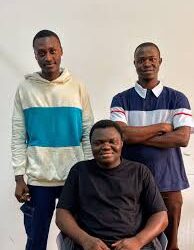Kenyan telecommunications giant Safaricom is set to enter the satellite internet market and compete with SpaceX’s Starlink. Safaricom plans to collaborate with Texas-based AST SpaceMobile, a rival of Starlink, to offer hi-speed satellite internet services in Kenya.
Utilising a constellation of satellites that can directly communicate with standard 4G smartphones, AST SpaceMobile is developing a space-oriented network that provides satellite-based internet access to remote areas. This technology enables low-cost broadband connectivity in rural and remote regions, making it the first company to offer services of this kind.
AST SpaceMobile’s prototype satellite, Bluewalker 3, underwent initial testing in 2022 and is scheduled for an official trial in Kenya later this year. The trial will involve the participation of Safaricom and other African operators within the Vodacom group. After the trial, AST SpaceMobile plans to expand its satellite deployments with Vodacom’s collaboration to provide continuous communication to 4G devices across Africa and beyond.
In contrast, Starlink, owned by Elon Musk, has already launched its satellite-based services in several African countries, including Nigeria, Rwanda, and Mozambique. Starlink has also received operational license in Sierra Leone and has applied for one in Kenya, but the availability and cost of its services remain unclear.
Safaricom’s entry into the satellite internet market poses a significant challenge to Starlink, especially with its partnership with AST SpaceMobile, which focuses on mobile phone connectivity.
Safaricom aims to leverage AST SpaceMobile’s satellite internet technology to enhance its existing broadband services, including Wi-Fi, cellular networks, and fiber optic cables. However, challenges may arise regarding the pricing of Safaricom’s satellite internet service, as it might be expensive for budget-conscious customers who rely on affordable data bundles and free public Wi-Fi hotspots.
The partnership between Safaricom and AST SpaceMobile is supported by their parent company, Vodacom, which is also an investor in the satellite internet provider. The successful trial and subsequent expansion of satellite deployments are expected to generate revenue, with AST SpaceMobile sharing profits equally with Safaricom and other Vodacom subsidiaries. Starlink, on the other hand, has already gained traction in African markets, showcasing impressive performance despite concerns about adverse weather conditions.
As Safaricom aims to challenge Starlink’s dominance in Kenya, its collaboration with AST SpaceMobile and its focus on mobile phone connectivity could give it an edge. However, the outcome will depend on how Starlink responds to this competition.
Starlink’s success in Rwanda, where it provided high-speed internet to schools, demonstrates the potential for targeting specific markets to improve digital literacy and online learning opportunities. Kenyans hope for swift access to satellite internet services and a more competitive landscape in the country’s telecommunications sector.




